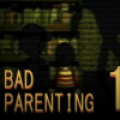

I first encountered Bad Parenting when I was casually exploring quirky simulation games, and immediately I was drawn in by its ludicrous premise and unapologetic approach to the everyday trials of parenting. From the very first moment, I found myself both amused and intrigued by the satirical way the game portrayed the ups and downs of raising mischievous children. The narrative began by challenging conventional ideas about parental responsibilities, beckoning me to dive deep into a world where decisions carried unexpected consequences.
An Immersive Departure from Tradition
As someone who has always enjoyed games that break the mold, I was enchanted by how Bad Parenting defies norms. The game’s clear disregard for traditional parenting simulations captured my attention early on. It offered a refreshing alternative to the usual formula of structured nurturing and predictable challenges. Instead, I found myself managing an environment where every choice revealed layers of humor and unpredictable outcomes, making every moment an exploration of unconventional family dynamics.
A Bold Narrative Experiment
What struck me most was the game’s willingness to embrace a narrative that balanced ludicrous humor with moments of genuine reflection. I encountered scenarios where lighthearted misadventures coexisted with subtle commentary on modern family life. The narrative cleverly interweaved absurd instructions with hints of sincerity, making my role as a caregiver both entertaining and thought-provoking. This narrative approach was not just to entertain; it made me consider different perspectives on responsibility and personal growth.
Daring Gameplay Mechanics
In terms of gameplay, Bad Parenting offers a series of mechanics that test your multitasking abilities. I enjoyed juggling various tasks simultaneously—ranging from managing household resources to calming down an unruly child who had just discovered an unconventional way to explore his newfound freedom. Each level presented a roster of tasks that required both quick reflexes and strategic forethought. The game challenged me to prioritize activities while ensuring that every need was met in a timely, albeit humorous, way.
An Unpredictable Interface
The interface of the game impressed me with its dynamic and user-friendly design. Navigating through menus was a delightful surprise as I quickly learned that every icon, button, and slider had a role in influencing the game’s outcomes. I found the controls to be intuitive, allowing even a novice like me to dive headfirst into its quirky world. The interface not only supported the gameplay but also enhanced the immersive experience with animations and sound cues that perfectly matched the game’s wry tone.
Vivid Artistic Expression
The aesthetic design of Bad Parenting is as bold as its concept. I appreciated how the visuals embraced a cartoonish charm that was both whimsical and slightly exaggerated, reflecting the humorous nature of its content. The character designs, the animated gestures, and even the background scenes contributed to a cohesive theme that resonated with the game’s underlying message of embracing imperfections. The art style elevated the overall experience, balancing humor with a touch of heart.
Soundscapes that Tell a Story
The audio in Bad Parenting played a significant role in shaping the experience. I was delighted by the quirky soundtracks and subtle sound effects that punctuated everyday scenarios. Every chuckle, gasp, and playful exclamation in the game felt perfectly synchronized with what was happening on screen. The whimsical melodies added a layer of charm, while occasional dramatic tones underscored moments when my in-game decisions led to unforeseen chaos, making the auditory experience both memorable and engaging.
Moments of Everyday Chaos
While the overall theme of the game centers on the humorous struggles of caregiving, it doesn’t shy away from showing how everyday chaos can lead to hilarious predicaments. I encountered several instances where minor oversights in my management style quickly escalated into unforeseeable scenarios. The game captured those unpredictable moments brilliantly, making every session an opportunity to try a different approach or to laugh at a peculiar twist of fate. It felt like a celebration of the unplanned, the imperfect, and the hilariously unexpected.
Strategic Decision-Making in a Family Setting
I was particularly drawn to how the game balances the necessity for careful planning with the thrill of spontaneity. Every choice was a calculation; I had to decide which responsibility took precedence and how to allocate limited resources in a way that kept the household running smoothly. The game fed me scenarios where each decision triggered a cascade of consequences. This mechanic not only kept me constantly on my toes but also underscored the delicate balance that real-life caregiving requires, albeit with a humorous twist.
Innovative Multi-Tasking Elements
What truly sets Bad Parenting apart for me is its array of multi-tasking elements. I found myself managing not just a single storyline, but juggling multiple responsibilities at once. Whether it was preparing a meal while monitoring the children’s antics or solving spontaneous problems that arose out of nowhere, the game pushed me to be agile and creative. These moments demanded my full attention and strategic planning, drawing me ever deeper into the quirky ecosystem the developers meticulously crafted.
Humor in the Midst of Mayhem
Humor is woven throughout every aspect of Bad Parenting, and I was never short of chuckles during my time with the game. The wit in the dialogue and the comical expressions of the characters kept the atmosphere light, even when the tasks seemed overwhelming. This laughter-inducing quality was a welcome reprieve from the stresses that often accompany management simulations. Every time I navigated a particularly chaotic moment, I knew I was in for a blend of amusement and inventive problem-solving that made the experience thoroughly rewarding.
Interactive Narrative Twists
The game thrives on unpredictability. I frequently experienced narrative twists that forced me to change tactics on the fly. These unforeseen developments not only added depth to the storyline but also provided a fresh challenge each time I played. One minute I was calmly balancing chores, and the next, an unexpected event would disrupt the routine, demanding a swift adjustment to my parenting strategy. This sense of unpredictability made the gameplay continually engaging, as I never knew quite what the next scenario might entail.
Customizable Game Systems
Customization has always been a hallmark of immersive simulation games, and Bad Parenting did not disappoint on this front. I was given the freedom to adjust various game parameters to suit my play style. Whether tweaking the difficulty level of certain tasks, altering the pace of the storyline, or modifying the appearance of various in-game elements, the level of personalization was impressive. This flexibility allowed me to tailor the experience to my liking, creating a unique journey that reflected my personal approach to the game’s challenges.
Moral Dilemmas and Ethical Choices
One of the more intriguing aspects of Bad Parenting is the way it weaves moral dilemmas into everyday gameplay. I had to confront tough decisions that made me question my priorities and ponder over the true meaning of effective caregiving. The game posed scenarios where I needed to weigh the potential ramifications of each action, adding a thoughtful layer to what could otherwise have been a purely comedic experience. These moments provided a reflective pause, forcing me to consider the balance between humor and responsibility.
Community Interactions and Social Elements
Interacting with other characters in the game added a layer of social complexity that I appreciated. Although the narrative was largely centered on the household, occasional encounters with neighbors and other influential figures provided a broader context to the world. These interactions were laced with subtle humor and delivered insights into the extended community, making the dynamics around me feel vibrant and alive. The game’s clever integration of social elements made it feel more expansive than just a singular family story.
A Journey Through Quirky Challenges
Every session with Bad Parenting was a journey through a series of quirky challenges that kept me both engaged and entertained. I found that each level introduced a new set of rules and scenarios, compelling me to adapt and rethink my usual strategies. Whether I was negotiating a minor dispute between two animated characters or orchestrating a seemingly minor event that rapidly spiraled into chaos, each challenge was a testament to the game’s ingenuity. The constant requirement to think on my feet contributed to a deeply satisfying sense of accomplishment as I managed to restore order in my own unconventional way.
Inventive Role-Playing Dynamics
Bad Parenting offers role-playing dynamics that are refreshingly inventive. I truly enjoyed stepping into the shoes of a character who, despite being immersed in a world of eccentric challenges, felt genuine. The game allowed me to explore aspects of my decision-making and creativity that are not often highlighted in more conventional simulation titles. With each decision and every interaction, I felt a blend of responsibility and humor that made the experience all the more captivating. By engaging with various characters and their diverse backstories, I could see the ripple effects of even the smallest choices, making every moment feel significant in its own right.
Pros
-
Unique humorous narrative that challenges traditional simulation games
-
Engaging and dynamic gameplay with frequent unexpected twists
-
Customizable game systems that offer a tailored experience
-
Intuitive interface that makes navigation straightforward
-
Creative aesthetics that combine cartoonish visuals with rich details
-
Sound design that enhances immersion and playful atmosphere
Cons
-
Some scenarios can become overly chaotic or overwhelming
-
Certain narrative twists may feel abrupt or underexplained
-
Limited depth in decision-making may leave players desiring more complex challenges






















Leave a comment
Your comment is awaiting moderation. We save your draft here
0 Comments